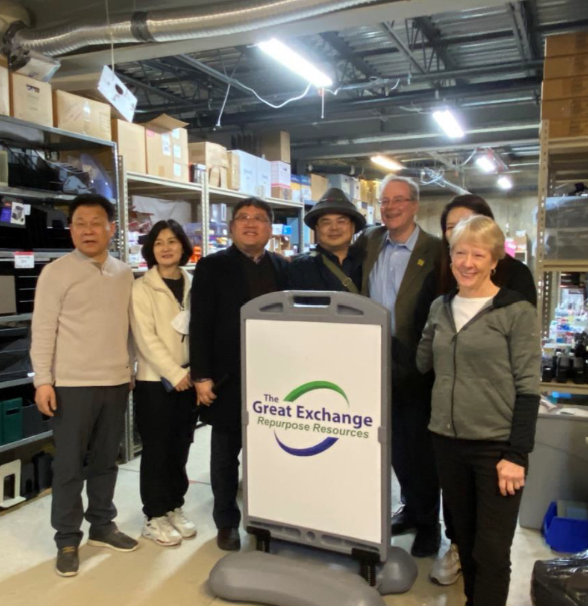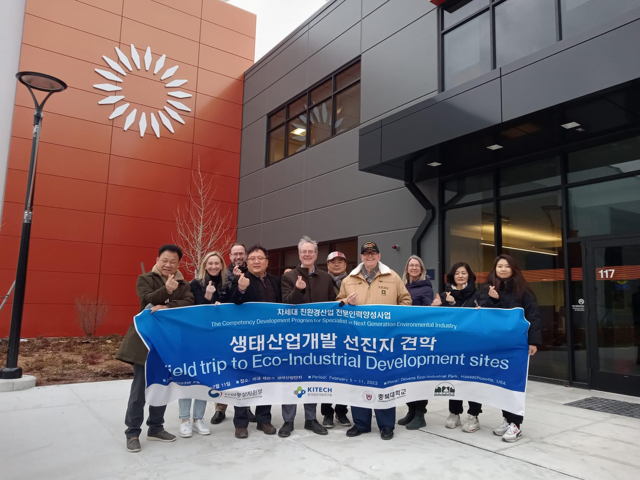Earlier this month, the Devens Enterprise Commission (DEC) hosted a Korean delegation from Chungbuk National University to tour our Model Eco-Industrial Park and various sustainable businesses and programs across Devens. As a nationally recognized leader for advancing healthy, green, and economically strong communities, Devens often hosts international delegations who are interested in our sustainability work.
The team of five faculty and graduate students from South Korea along with their interpreter received lectures about the history and sustainable practices of Devens, received an orientation driving tour of the Devens Community, and toured several premier businesses, notably Little Leaf Farms, New England Studios, Pathways at King Street Properties, and Commonwealth Fusion Systems (CFS). The Devens Eco Efficiency Center and The Great Exchange were also highlights of the tour.

The delegation visits Little Leaf Farms and the Great Exchange Program.
Professor Sang-Kyu Jeong from the Department of Smart Eco-Industrial Convergence at Chungbuk National University led the delegation. Peter Lowitt, Director of DEC has visited the affiliated Eco-Industrial Park in Chungbuk, South Korea in the past. The partnership between the two institutions was formalized during this Devens visit with the signing of a memorandum of understanding (MOU). The MOU is intended to promote educational and academic exchange via sharing of information, meetings, and potential joint research project partnerships.
The Circular Economy
Part of what makes Devens such a compelling place to visit for international folks is our commitment and successful integration of “circular” practices. Devens strives to go beyond the typical 'reduce, reuse, recycle' approach to waste management by embracing the principles of a 'circular economy' and aiming to be a leader in providing resources and infrastructure to support this. The Circular Economy Lab defines the circular economy as:
"The circular economy is an approach to maximize value and eliminate waste by improving (and in some cases transforming) how goods and services are designed, manufactured and used. It touches on everything from material selection to business strategy to the configuration of regulatory frameworks, incentives and markets.” (Ellen Macarthur Foundation)
One of the centerpieces of our tour with the Korean delegation was The Great Exchange program, our biggest achievement in circular waste management yet. The Great Exchange is a program run out of the Devens Eco-Efficiency Center that prevents the waste of unneeded items and provides savings opportunities for not-for-profit, commercial, and industrial entities by hosting bi-monthly shopping events for lightly used items. Schools, municipalities, non-profits, and community organizations can access a variety of new and like-new operating supplies, furniture, and fixtures.
Want to learn more or get involved with The Great Exchange? Check out their website!
The Great Exchange - The alternative solution for excess resources – (tgedevens.com)
Previous Post
Local Sustainable Food
Next Post
Climate Resilience & Public Safety: An Interview with Devens Fire Chief


